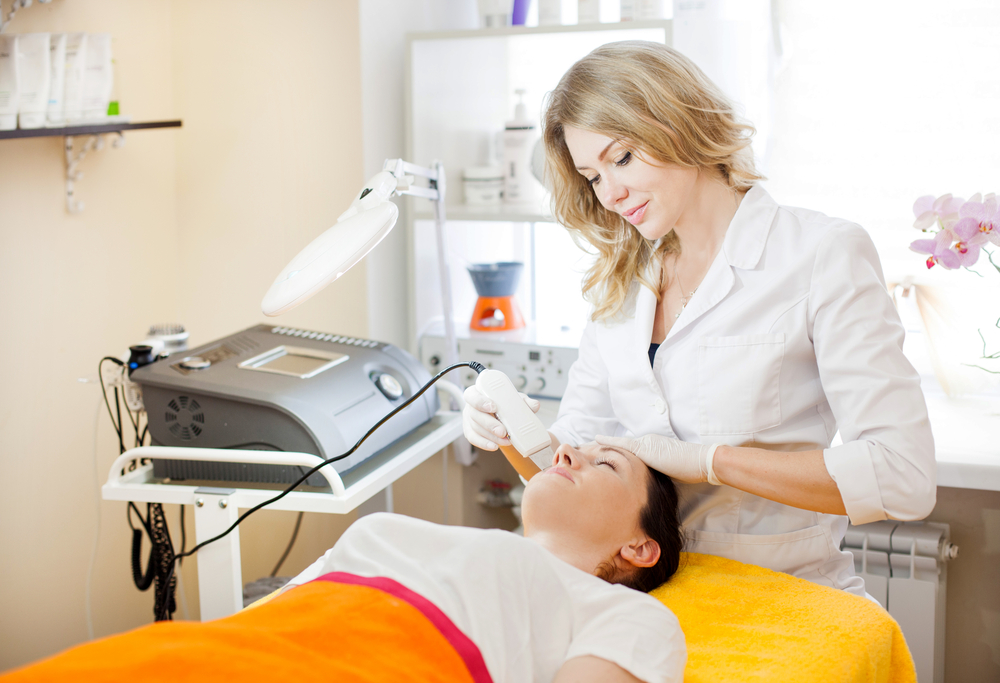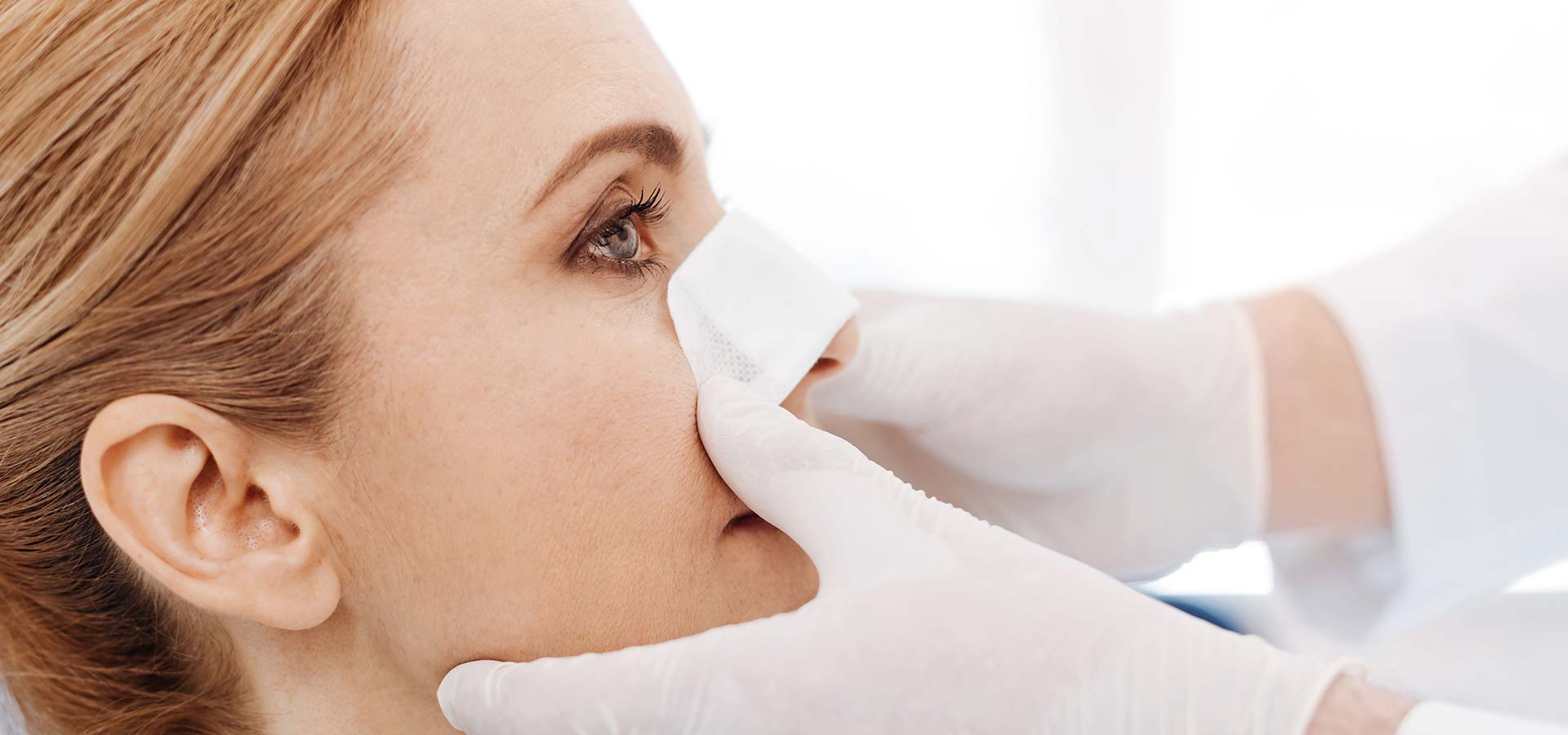- Medical aestheticians are similar to spa aestheticians, but instead of working in a salon or spa, they typically work in a medical environment.
- They’re able to perform a wide range of jobs, from helping patients reduce swelling after surgery to providing treatments for acne and wrinkles.
- Medical aestheticians have the potential to earn as much as $75,000, depending on where they live, but the average yearly salary hovers around $40,000 in the United States.
- To become a medical aesthetician, you must complete coursework at a cosmetology school and then obtain a license from the state’s Board of Cosmetology.
Outside of actual dermatologists, medical aestheticians are some of the most well-trained professionals specializing in beautiful skin, employing a perfect blend of biology, chemistry, and creativity. They perform a wide variety of medical and skincare treatments, ranging from body sculpting and laser treatments to chemical peels and facials.
Here’s what it takes to become a licensed skin specialist.
Aestheticians vs. Estheticians
Before we dive in, let’s clear up a few common misconceptions. There is no difference between an aesthetician and an esthetician, besides how they’re spelled. The former is the more common European spelling, while the latter is Americanized.
Both work in the field of “esthetics” — taken from the word “aesthetics,” the Greek branch of philosophy that studies beauty — especially when it comes to the skin and body. There are different types of aestheticians, however, all of which are trained skincare specialists.
- Medical Aestheticians — Medical aestheticians are licensed and trained to work with potent acids, lasers and complex equipment, and can perform certain medical treatments in addition to, or related to, skincare procedures. They often have a background in nursing or healthcare. Because of this, medical aestheticians work in a medical setting and are often employed in cosmetic surgery practices and other healthcare facilities.
- Spa Aestheticians — On the other hand, spa aestheticians usually work in spa settings and are more focused on cosmetic treatments. They may be more likely to recommend certain skincare products and often perform treatments that focus on the face, such as European facials and microdermabrasion.
Both spa and medical aestheticians must complete a specialized training program, often through a cosmetology school. Each state has its own Board of Cosmetology and licensing requirements.
What Do Medical Aestheticians Do?
According to aesthetician Sharrona Katz-Moulay at Yael Halaas MD in NYC & Westchester, New York, medical aestheticians perform a wide range of duties. In her practice, for example, she performs body contouring, anti-aging treatments, and specialized skin care procedures.
In some states a licensed medical aesthetician may also perform laser hair removal, facials, Botox and cosmetic filler injections. Katz-Moulay recommends that new aestheticians don’t just focus on one thing, both in their training and when developing treatment plans.
“More often than not, I have found that taking a wider approach and combining different modalities will yield much greater results than doing one thing,” she says.
So what’s an average day like for a medical esthetician? According to Jennifer Humphrey, a medical aesthetician at Chernoff Cosmetic Surgeons in Indianapolis, these medical professionals are often integral to plastic surgery procedures as well.
Humphrey says the day might start with reviewing patient charts and looking at the schedule. After that, aestheticians who work within plastic surgery practices will often work alongside plastic surgeons.
“A medical aesthetician can be pulled into a room to treat bruising after a procedure with ultrasound, or to apply camouflage makeup. Additionally, we’ll work with patients before and after a facelift or rhytidectomy as well as other procedures. There are precautions to consider.”
The rest of the time, Humphrey says her team assists the medical practice by answering phones and scheduling appointments and surgeries.
Where Do Medical Aestheticians Work?
Unlike spa aestheticians, medical aestheticians tend to work in medical environments, such as a medical spa, a plastic surgeon’s practice, a dermatology clinic or a physician’s office that offers aesthetician services. In general, this means that there’s more oversight and diligence required.
“A medical practice is very different from a spa, because the treatments can be more invasive and it is essential to chart and make sure consents are signed,” says Humphrey.
The environment in which the aesthetician works will define the job description. For example, if you work in a plastic surgeon’s office, you might be responsible for some pre-and post-operative tasks. In a dermatologist’s office or medical spa, there’s a good chance you’ll have to learn how to use high-tech machinery, like laser therapy equipment.
How Much Do Medical Aestheticians Earn?
According to the U.S. Bureau of Labor Statistics, in 2016 skincare specialists earned a median pay of $30,270 per annum and/or $14.55 an hour, although there is evidence to suggest that these numbers are much higher in certain areas of the United States.
For example, Indeed.com reports that some aestheticians in California make as much as $74,000 per annum, while entry-level aestheticians in Georgia earn over $22 an hour on average, a full 24% above the national rate.
At a glance, a medical aesthetician’s wage appears significantly lower than other medical careers, but is slightly more than the average annual salary of a worker without a college degree. Additionally, many aestheticians are able to increase their earnings beyond their salary through commissions, tips, and upselling some products.
Their earnings may also depend on how they work; some aestheticians are salaried and work for a specific facility while others are self-employed and travel from location to location.
Is the Job Secure?
Nowadays, the No. 1 question career-seekers must ask themselves is whether a given career path will be secure over the long term — you know, in light of automation and everything — and if there’s room for job growth.
According to the Bureau of Labor Statistics, the job will grow by approximately 13 percent by 2026, which is almost double the national average. By that year, the bureau estimates there will be roughly 7,700 more aestheticians in the job market. Indeed, the career has a good outlook moving forward.
How to Become a Medical Aesthetician
If all of this sounds great and you still want to pursue the field, the first thing to do is research different cosmetology programs in your area. Most typically require you to have a high school diploma or graduate-equivalency diploma (GED) before you can be admitted. Specific requirements for each program vary by state.
In some states, a certificate from an accredited program, an associate’s degree or an apprenticeship may be obtained in lieu of formal training at a cosmetology school. In traditional programs, students learn how to do basic tasks like analyze the skin for different conditions, perform facials and other technical jobs. They often must study physiology and anatomy alongside practical training.
“I think my perception of aesthetics school was that it would mostly be a lot of fun facials and massage,” says Humphrey. “But there’s anatomy, electricity, and a lot of intensive coursework required to prepare you for the field.”
Once you’ve completed your coursework — which usually requires approximately 600 hours in technical and practical instruction, with some states requiring more and others requiring less — you’ll have to obtain a state license.
The state board issues licenses based on graduation from an accredited, approved cosmetology program and passage of written and practical exams. And then there’s the factor of continued education. For most people, obtaining an esthetician license isn’t enough to get by for the entirety of their career. Additional training, primarily in new cosmetic and skincare treatments, is essential, even decades into your career.
“It’s an ever-changing field, and the learning never stops,” says Katz-Moulay. “You can take it in a million different directions if you’re a person who loves to learn.”
One direction some aestheticians choose to take their careers is becoming a master aesthetician. In addition to all the typical duties performed by medical aestheticians, master aestheticians are able to expand their area of study to treat a greater number of skin conditions and cosmetic issues. Some states offer two-tier licensing systems which allow aestheticians to obtain master status through additional coursework.
Are There Any Downsides?
The aestheticians we talked to agree that the field is a great one; it’s challenging and rewarding at the same time. Helping people at any age achieve more beautiful skin is the best part of the job, they say.
“There are so many things I love about being an aesthetician. I love interacting with different people every day, connecting with them and helping them achieve their goals,” Humphrey says.
But what about the downsides? For Katz-Moulay, the digital age has presented a whole slew of challenges for herself and others in the field.
“Many times, the challenge is to educate patients with the correct information. Clients go online and are often misinformed or overwhelmed by all the options, which leads to a lot of confusion,” she says. Katz-Moulay also explained how a big part of her job is helping clients sort the skincare myths (and empty promises) from the skincare facts.









